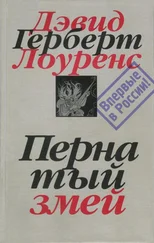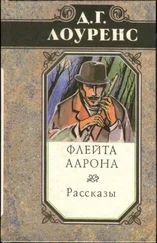Дэвид Лоуренс - Sons and Lovers
Здесь есть возможность читать онлайн «Дэвид Лоуренс - Sons and Lovers» весь текст электронной книги совершенно бесплатно (целиком полную версию без сокращений). В некоторых случаях можно слушать аудио, скачать через торрент в формате fb2 и присутствует краткое содержание. Жанр: Старинная литература, на английском языке. Описание произведения, (предисловие) а так же отзывы посетителей доступны на портале библиотеки ЛибКат.
- Название:Sons and Lovers
- Автор:
- Жанр:
- Год:неизвестен
- ISBN:нет данных
- Рейтинг книги:3 / 5. Голосов: 1
-
Избранное:Добавить в избранное
- Отзывы:
-
Ваша оценка:
- 60
- 1
- 2
- 3
- 4
- 5
Sons and Lovers: краткое содержание, описание и аннотация
Предлагаем к чтению аннотацию, описание, краткое содержание или предисловие (зависит от того, что написал сам автор книги «Sons and Lovers»). Если вы не нашли необходимую информацию о книге — напишите в комментариях, мы постараемся отыскать её.
Sons and Lovers — читать онлайн бесплатно полную книгу (весь текст) целиком
Ниже представлен текст книги, разбитый по страницам. Система сохранения места последней прочитанной страницы, позволяет с удобством читать онлайн бесплатно книгу «Sons and Lovers», без необходимости каждый раз заново искать на чём Вы остановились. Поставьте закладку, и сможете в любой момент перейти на страницу, на которой закончили чтение.
Интервал:
Закладка:
“But wait till I light on you, no matter where it is, I’ll settle your hash for a bit, yer little swine!”
“All right,” said Paul.
At that the smith started heavily from the doorway. Just then a whistle piped shrilly. Paul went to the speaking-tube.
“Yes!” he said, and he listened. “Er—yes!” He listened, then he laughed. “I’ll come down directly. I’ve got a visitor just now.”
Dawes knew from his tone that he had been speaking to Clara. He stepped forward.
“Yer little devil!” he said. “I’ll visitor you, inside of two minutes! Think I’m goin’ to have you whipperty-snappin’ round?”
The other clerks in the warehouse looked up. Paul’s office-boy appeared, holding some white article.
“Fanny says you could have had it last night if you’d let her know,” he said.
“All right,” answered Paul, looking at the stocking. “Get it off.”
Dawes stood frustrated, helpless with rage. Morel turned round.
“Excuse me a minute,” he said to Dawes, and he would have run downstairs.
“By God, I’ll stop your gallop!” shouted the smith, seizing him by the arm. He turned quickly.
“Hey! Hey!” cried the office-boy, alarmed.
Thomas Jordan started out of his little glass office, and came running down the room.
“What’s a-matter, what’s a-matter?” he said, in his old man’s sharp voice.
“I’m just goin’ ter settle this little—, that’s all,” said Dawes desperately.
“What do you mean?” snapped Thomas Jordan.
“What I say,” said Dawes, but he hung fire.
Morel was leaning against the counter, ashamed, half-grinning.
“What’s it all about?” snapped Thomas Jordan.
“Couldn’t say,” said Paul, shaking his head and shrugging his shoulders.
“Couldn’t yer, couldn’t yer!” cried Dawes, thrusting forward his handsome, furious face, and squaring his fist.
“Have you finished?” cried the old man, strutting. “Get off about your business, and don’t come here tipsy in the morning.”
Dawes turned his big frame slowly upon him.
“Tipsy!” he said. “Who’s tipsy? I’m no more tipsy than you are!”
“We’re heard that song before,” snapped the old man. “Now you get off, and don’t be long about it. Comin’ here with your rowdying.”
The smith looked down contemptuously on his employer. His hands, large, and grimy, and yet well shaped for his labour, worked restlessly. Paul remembered they were the hands of Clara’s husband, and a flash of hate went through him.
“Get out before you’re turned out!” snapped Thomas Jordan.
“Why, who’ll turn me out?” said Dawes, beginning to sneer.
Mr. Jordan started, marched up to the smith, waving him off, thrusting his stout little figure at the man, saying:
“Get off my premises—get off!”
He seized and twitched Dawes’s arm.
“Come off!” said the smith, and with a jerk of the elbow he sent the little manufacturer staggering backwards.
Before anyone could help him, Thomas Jordan had collided with the flimsy spring-door. It had given way, and let him crash down the half-dozen steps into Fanny’s room. There was a second of amazement ; then men and girls were running. Dawes stood a moment looking bitterly on the scene, then he took his departure.
Thomas Jordan was shaken and bruised, not otherwise hurt. He was, however, beside himself with rage. He dismissed Dawes from his employment, and summoned him for assault.
At the trial Paul Morel had to give evidence. Asked how the trouble began, he said:
“Dawes took occasion to insult Mrs. Dawes and me because I accompanied her to the theatre one evening; then I threw some beer at him, and he wanted his revenge.”
“Cherchez la femme! ” fysmiled the magistrate.
The case was dismissed after the magistrate had told Dawes he thought him a skunk.
“You gave the case away,” snapped Mr. Jordan to Paul.
“I don’t think I did,” replied the latter. “Besides, you didn’t really want a conviction, did you?”
“What do you think I took the case up for?”
“Well,” said Paul, “I’m sorry if I said the wrong thing.” Clara was also very angry.
“Why need my name have been dragged in?” she said.
“Better speak it openly than leave it to be whispered.”
“There was no need for anything at all,” she declared.
“We are none the poorer,” he said indifferently.
“ You may not be,” she said.
“And you?” he asked.
“I need never have been mentioned.”
“I’m sorry,” he said; but he did not sound sorry.
He told himself easily: “She will come round.” And she did.
He told his mother about the fall of Mr. Jordan and the trial of Dawes. Mrs. Morel watched him closely.
“And what do you think of it all?” she asked him.
“I think he’s a fool,” he said.
But he was very uncomfortable, nevertheless.
“Have you ever considered where it will end?” his mother said.
“No,” he answered; “things work out of themselves.”
“They do, in a way one doesn’t like, as a rule,” said his mother.
“And then one has to put up with them,” he said.
“You’ll find you’re not as good at ‘putting up’ as you imagine,” she said.
He went on working rapidly at his design.
“Do you ever ask her opinion?” she said at length.
“What of?”
“Of you, and the whole thing.”
“I don’t care what her opinion of me is. She’s fearfully in love with me, but it’s not very deep.”
“But quite as deep as your feeling for her.”
He looked up at his mother curiously.
“Yes,” he said. “You know, mother, I think there must be something the matter with me, that I can’t love. When she’s there, as a rule, I do love her. Sometimes, when I see her just as the woman , I love her, mother; but then, when she talks and criticises, I often don’t listen to her.”
“Yet she’s as much sense as Miriam.”
“Perhaps; and I love her better than Miriam. But why don’t they hold me?”
The last question was almost a lamentation. His mother turned away her face, sat looking across the room, very quiet, grave, with something of renunciation.
“But you wouldn’t want to marry Clara?” she said.
“No; at first perhaps I would. But why—why don’t I want to marry her or anybody? I feel sometimes as if I wronged my women, mother.”
“How wronged them, my son?”
“I don’t know.”
He went on painting rather despairingly; he had touched the quick of the trouble.
“And as for wanting to marry,” said his mother, “there’s plenty of time yet.”
“But no, mother. I even love Clara, and I did Miriam; but to give myself to them in marriage I couldn’t. I couldn’t belong to them. They seem to want me , and I can’t ever give it them.”
“You haven’t met the right woman.”
“And I never shall meet the right woman while you live,” he said.
She was very quiet. Now she began to feel again tired, as if she were done.
“We’ll see, my son,” she answered.
The feeling that things were going in a circle made him mad.
Clara was, indeed, passionately in love with him, and he with her, as far as passion went. In the daytime he forgot her a good deal. She was working in the same building, but he was not aware of it. He was busy, and her existence was of no matter to him. But all the time she was in her Spiral room she had a sense that he was upstairs, a physical sense of his person in the same building. Every second she expected him to come through the door, and when he came it was a shock to her. But he was often short and offhand with her. He gave her his directions in an official manner, keeping her at bay. With what wits she had left she listened to him. She dared not misunderstand or fail to remember, but it was a cruelty to her. She wanted to touch his chest. She knew exactly how his breast was shapen under the waistcoat, and she wanted to touch it. It maddened her to hear his mechanical voice giving orders about the work. She wanted to break through the sham of it, smash the trivial coating of business which covered him with hardness, get at the man again; but she was afraid, and before she could feel one touch of his warmth he was gone, and she ached again.
Читать дальшеИнтервал:
Закладка:
Похожие книги на «Sons and Lovers»
Представляем Вашему вниманию похожие книги на «Sons and Lovers» списком для выбора. Мы отобрали схожую по названию и смыслу литературу в надежде предоставить читателям больше вариантов отыскать новые, интересные, ещё непрочитанные произведения.
Обсуждение, отзывы о книге «Sons and Lovers» и просто собственные мнения читателей. Оставьте ваши комментарии, напишите, что Вы думаете о произведении, его смысле или главных героях. Укажите что конкретно понравилось, а что нет, и почему Вы так считаете.









